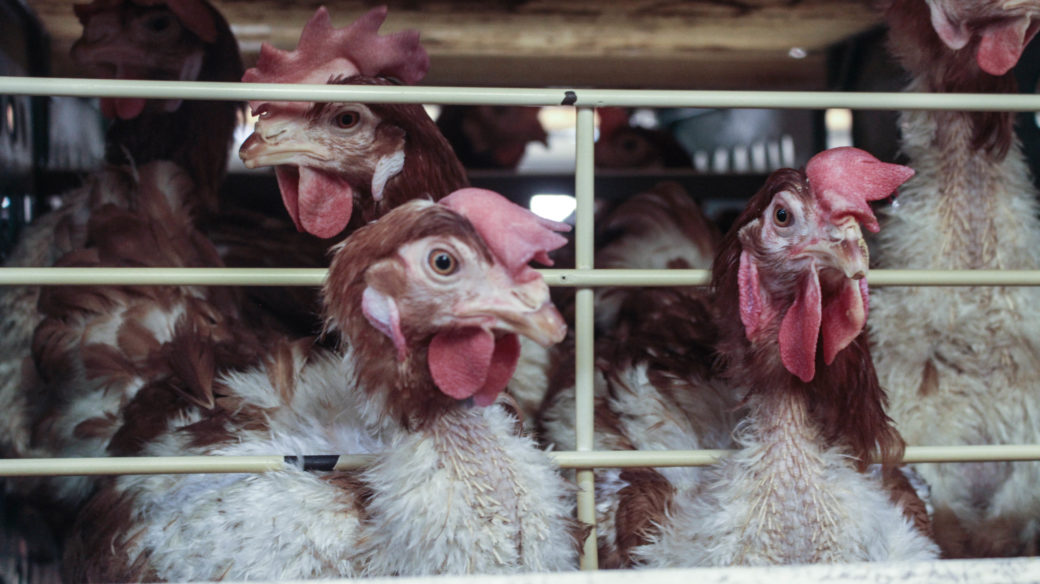World Bank urged to drop a $50 million loan for factory farm expansion in Ecuador because of health, social and environmental impacts

20 May 2021–World Bank urged to drop a $50 million loan for factory farm expansion in Ecuador because of health, social and environmental impacts
The World Bank is being urged to drop a $50 million loan to Pronaca, Ecuador’s biggest livestock producer, because of its harmful impact on the environment and rural and indigenous communities and violations of the Bank’s own policies. The World Bank’s International Finance Corporation (IFC) board is expected to make a decision on the loan at a meeting on Friday 22 May.
The loan from the International Finance Corporation, the private lending arm of the World Bank, would finance the expansion of Pronaca’s pork and chicken operations in Ecuador. The company, which has an annual turnover of almost $1 billion, manages over 115 industrial pig and poultry operations in Ecuador and has received at least $120 million worth of loans from the World Bank since 2004.
A coalition of Ecuadorian groups and international NGOs are calling on the Bank to stop further funding for Pronaca. “Potential new financing by IFC for Pronaca represents a new threat to the environment, the rights of communities and the wellbeing of thousands of animals… The impact on human health and ecosystems will persist, while the Ecuadorian authorities continue to fail in their responsibility to effectively ensure compliance with environmental regulations and animal welfare,” says the statement released last April.
Xavier León, from Acción Ecológica, an Ecuadorian environmental NGO that works in coalition with the Tsáchillas people, who are most impacted by Pronaca’s current operations said: “Pronaca should not be financed by the World Bank. The environmental, social and economic impacts of these intensive farms near the water sources and ancestral territories of the Tsáchilas indigenous people will only increase if the World Bank continues to support them.”
Local communities in the province of Santo Domingo de los Tsáchilas, which is home to 30 of Pronaca’s livestock facilities housing approximately 1 million pigs, twice the number of people, made a formal complaint to the IFC in 2010 stating that animal waste from Pronaca’s intensive livestock farms have contaminated the rivers that communities use to fish, water their crops and animals, and for bathing and cooking. This has led to a surge in health problems including skin, respiratory and gastrointestinal issues. Persistent foul odours have undermined the local tourist industry and the community’s quality of life.
On April 16, a coalition of 16 NGOs, including Sinergia Animal, Feedback, Friends of the Earth US, and the Global Forest Coalition sent a letter, highlighting why a loan for Pronaca was incompatible with the World Bank’s commitment to the Sustainable Development Goals and the Paris Climate Agreement.
“The World Bank should not be financing the fourth largest corporation in Ecuador to expand polluting factory farming operations across the country under the guise of development assistance,” said Kari Hamerschlag, Deputy Director of Food and Agriculture at Friends of the Earth U.S. “Pronaca already controls more than 50 percent of the poultry and pork market in Ecuador and this loan will further entrench the company’s monopoly at the expense of small-scale producers.”
“Investing in Pronaca would be a venture completely out of tune with the Sustainable Development goals,” said Merel van der Mark, Head of Animal Welfare and Finance Program of the NGO Sinergia Animal. “It’s unacceptable for the IFC to finance a company with such a long track record of negative social and environmental impacts and which plans to expand factory farms, that are by definition unsustainable”
“World Bank financing of industrial livestock runs counter to the recommendations of the Intergovernmental Panel on Climate Change, which has highlighted the need to reduce meat production – which is responsible for 15 percent of global emissions – and shift away from intensive agriculture systems towards agroecological systems,” added Jessica Sinclair Taylor, Head of Policy and Media of Feedback.
Contact:
Kari Hamerschlag, Friends of the Earth US, +1-510-207-7257
Merel van der Mark, Sinergia Animal, +351 964735277
Jessica Sinclair Tayolor, Feedback +44 7787 826709











